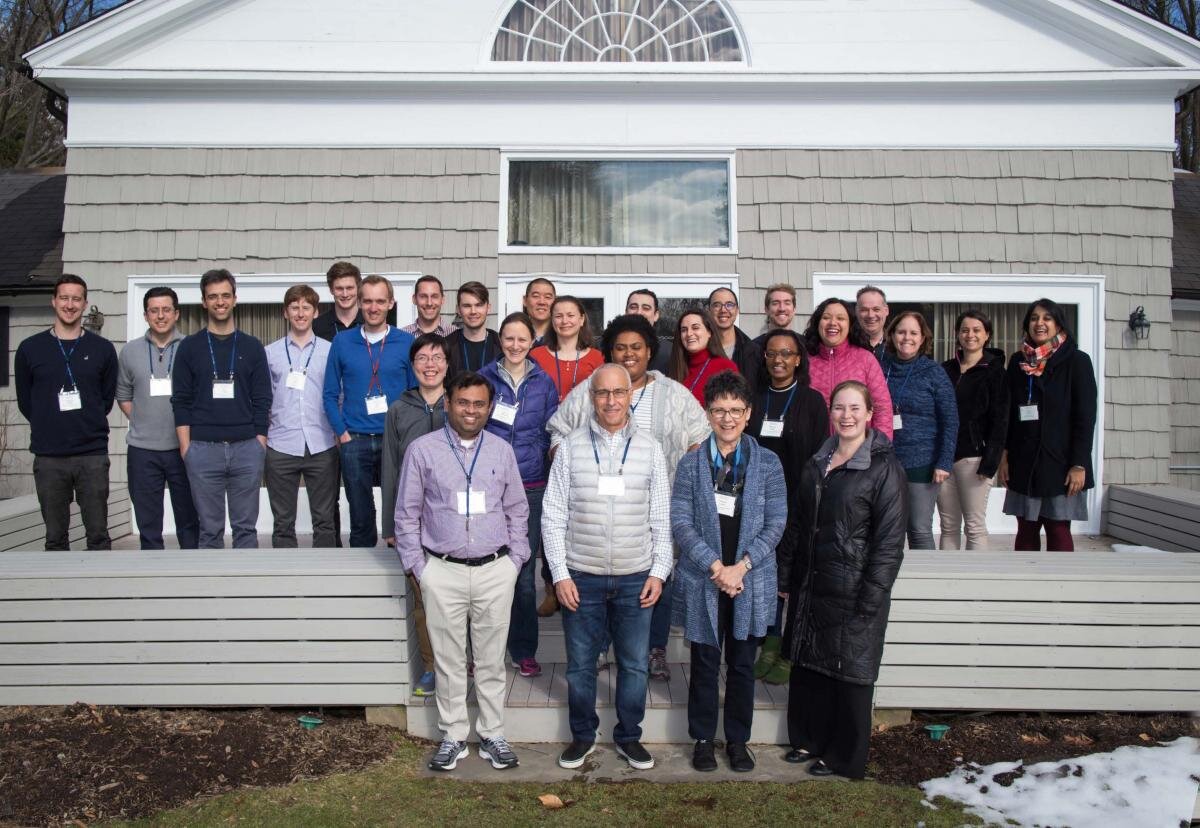
Building Your Career Playbook.
by Jacob Martin, PhD
When I first heard about the Convergence Scholars Program (CSP), I had already been doing a bit of soul searching. I felt like I was going in circles over what direction to take my career. For so long, I have been focused on the goal of leading my own academic research lab that I really hadn’t strongly considered other career options. However, due to a variety of reasons, I had been steadily losing confidence in my ability to achieve any faculty position job offers. Those reasons include reading articles about how relatively few PhDs end up as professors and how much more difficult it has become to receive grant funding, as well as challenges associated with the increasingly competitive pace of academic research. Meanwhile, the majority of my PhD classmates from Rensselaer Polytechnic Institute have entered into industrial scientist positions, primarily in the biopharmaceutical field, and most of them seem quite happy with their work. Even though my first reaction to most of those industrial job descriptions is that they don’t sound as exciting as leading my own academic research team, I have to admit that after living in the Boston area for a couple of years and entering my 30’s, sacrificing the potential for an academic career later in order to make a decent salary now has been sounding more and more like a reasonable tradeoff. That said, one of the reasons I felt encouraged to apply for the CSP was that beyond acknowledging that I should consider “alternative” careers, I didn’t know where to start. Of course, I knew of some of the options in the biopharmaceutical industry, but I really wanted to put everything back on the table and consider other careers that I might never have realized would be available and enjoyable for me. This idea seemed exciting but also daunting, and frankly, overwhelming.
Once I was accepted into the CSP program, I was impressed with the broad range of career goals that the other participants had. Fortunately, the program offered a variety of general skill-building workshops, which were useful for everybody. On the other hand, it was especially nice that we were able to find and get funding for professional development opportunities that were of particular interest to each of us individually. With this funding, I was able to attend a leadership workshop at Cold Spring Harbor Laboratory, which was designed to help future principle investigators to be good managers (group pic below). I felt that this experience really helped me to regain confidence in my abilities, and I feel that the training will be useful in whatever industry my career leads to, despite its focus on academia. In addition, I was able to use remaining funding to participate in an image analysis workshop at Harvard. This workshop contained a coding component, which was both useful for enabling my current research, but also because it re-opened my eyes to the fact that I really enjoy writing code and getting a program to run effectively. Because of this, I’m now much more receptive to careers which might involve computer programming as part of the job description.
Jake and other participants at the 2018 Leadership in Bioscience workshop at Cold Spring Harbor Laboratory.
In addition to the group activities and workshops, one of the great features of the CSP was the ability to interact with Tarek, the program coordinator. Thanks to our regular one-on-one meetings, Tarek essentially became another mentor for me, which is something that can be difficult to come by as a postdoc. Tarek was exceptionally accommodating; he connected me with people in his network who could provide additional insight on the various career paths that I was brainstorming about.
Now that the CSP year is coming to an end, I can definitely say that I am leaving with a variety of tools, experiences, and connections that have given me new confidence in my ability to find success and happiness in my future career. While I am still exploring my options, and I may still take a shot at applying for research faculty positions, I feel less stressed that I need to set up for the perfect career – rather, I’m optimistic that I can look for opportunities that are a good fit for wherever I am in my life at that point of time. CSP played an important part in giving me this more open-minded outlook.
Jake is currently a Senior Scientist at PureTech Health. As a postdoctoral associate at the Irvine lab, his research focused on directing antigen trafficking after vaccine administration by taking advantage of interactions between the innate and adaptive immune system. Previously, Jake worked on the design of macromolecular inhibitors of HIV and influenza virus, as part of his Ph.D. research with Ravi Kane in the chemical engineering department at RPI. He also received a B.S. in chemical engineering at the University of Connecticut, in 2008.
Jake is actively engaged in the broader MIT and Boston postdoc community as an officer in the MIT postdoc association, where he has served as the chair of the orientation committee, postdoc initiative grant committee, and treasurer.

